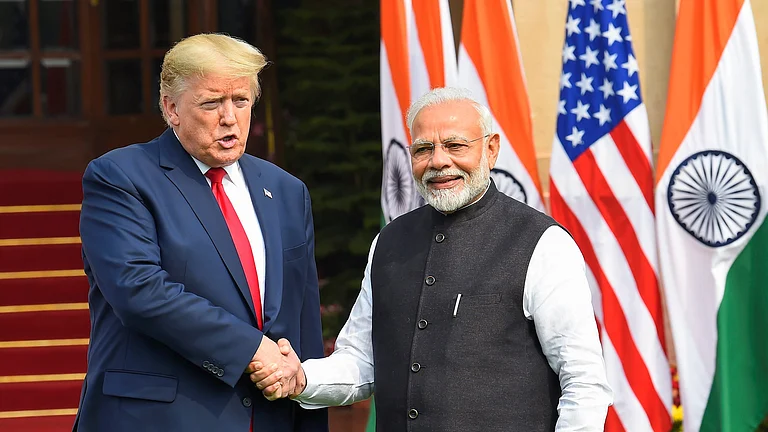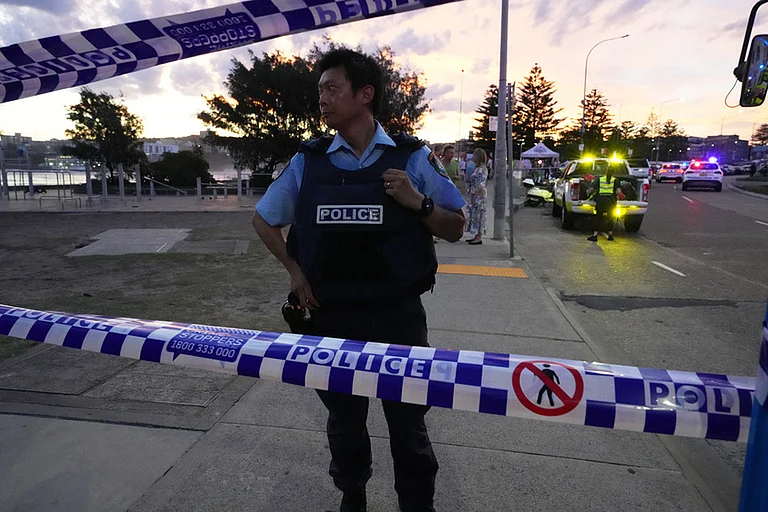Donald Trump, facing a persistent challenge with women voters, is ramping up efforts to win their support ahead of the 2024 election. On Wednesday, in a town hall event aired by Fox News in the battleground state of Georgia, Trump addressed an all-woman audience and fielded questions from female moderator Harris Faulkner.
The event was a crucial opportunity for Trump to connect with a key voter demographic that has been a weak point in his campaigns. Reading from prepared cards, women in the audience asked Trump about topics like childcare, immigration, and the economy—issues that are familiar territory for the former president. However, it was his comments on abortion and in vitro fertilisation (IVF) that drew the most attention.
When asked about his stance on fertility treatments, Trump responded by calling himself the "father of IVF." The remark, which his campaign later clarified as a joke, left some audience members puzzled. He then spoke about a conversation with Republican Alabama Senator Katie Britt, who he said explained the treatment to him. Trump described Britt as "a fantastically attractive person," a comment that sparked both laughter and criticism.
He claimed that the Republican Party stands firmly behind IVF treatments but his actions in office have left many women skeptical. Trump's appointment of three conservative justices to the U.S. Supreme Court played a pivotal role in overturning national abortion rights, a decision that has led some Democrats to argue that other reproductive rights, such as IVF, could be under threat.
Vice President Kamala Harris, speaking on the issue earlier this week, was direct in her criticism. "The reality is, his actions have been very harmful to women and families in America on this issue," she said. When asked specifically about Trump's IVF comment, Harris described it as "quite bizarre."
Women have largely been wary of Trump since his first presidential run in 2016, though exit polls suggested he won the majority of white women voters in the 2020 election. However, recent polls show that this crucial voter bloc remains divided as the 2024 election draws closer. A New York Times/Siena College poll conducted in late September and early October found that 56% of likely women voters supported Harris, compared to 40% for Trump. Among Black women, the gap was even wider, with 83% backing Harris and just 12% supporting Trump.
The gender gap could play a decisive role in battleground states like Georgia, where polling shows the race between Trump and Harris is tight. A recent Emerson College/The Hill poll showed Harris leading Trump among women voters in Georgia by a 10-point margin, 54% to 44%.
During the town hall, Trump leaned into his talking points on the economy, promising to expand fossil fuel drilling to lower energy costs and backing child tax credits to help parents with the high cost of raising children. He emphasised his record on these issues, which he believes resonate with women, especially those concerned about household finances.
"I know you will fight for us in the future," one questioner told Trump during the event. But another audience member pushed back, asking directly about his position on abortion. "Why is the government involved in women's basic rights?" she asked.
At a recent rally in Pennsylvania, he told supporters, "The women are going to like Trump. They don’t want millions of people coming through our border. They don’t want militaries pushing us around. They don’t want crime in the middle of our streets…They want to see a country that works."
This message resonates with some of his female supporters. Kim Pelletier, a 57-year-old Republican from Pennsylvania, is confident in Trump's ability to take care of women’s needs. "I personally think he's going to do a heck of a lot more for women than has been done in the past three and a half years," she told the BBC.


























